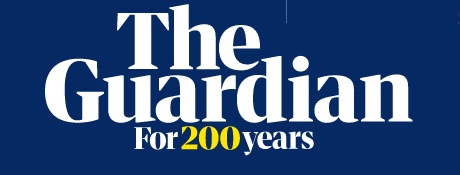UN warns of ‘looming hunger catastrophe’ due to Russian blockade
A looming hunger catastrophe is set to explode over the next two years, creating the risk of unprecedented global political pressure, the executive director of the UN World Food Programme has warned.
Calling for short- and long-term reforms – including an urgent lifting of the blockade on 25m tonnes of Ukrainian grain trapped by a Russian blockade – David Beasley said the current food affordability crisis is likely to turn into an even more dangerous food availability crisis next year unless solutions are found.
The number of people classed as “acutely food insecure” by the UN before the Covid crisis was 130 million, but after Covid this number rose to 276 million.
Writing a preface to a new pamphlet from the Blair Institute on the looming hunger crisis, Beasley says: “This number has increased to 345 million due to the Ukraine crisis. And a staggering 50 million people in 45 countries are now just one step from famine.
“The international community must act to stop this looming hunger catastrophe in its tracks – or these numbers will explode.
“Global food markets have been plunged into turmoil, with soaring prices, export bans and shortages of basic foodstuffs spreading far from Ukraine’s borders. Nations across Africa, the Middle East, Asia and even Latin America are feeling the heat from this conflict.”
Beasley says that threats to global food security have been exacerbated by the upheaval in worldwide fuel and fertiliser markets.
“Without urgent action, food production and crop yields will be slashed. This raises the frightening possibility that on top of today’s food-pricing crisis, the world will also face a genuine crisis of food availability over the next 12 to 24 months – and with it, the spectre of multiple famines.”
Food prices reached a 10-year high in 2022, although there has been a slight easing in the past two months. The crisis has been stoked by Russia’s invasion of Ukraine and its Black Sea blockade preventing crucial grain exports.
Launching the pamphlet A Global Crisis, Tony Blair told the Guardian the food crisis now hitting poor countries in Africa, Middle east and Asia “is absolutely likely to cause serious unrest in the same way as it did before the Arab Spring”.
He said: “There is a real risk that this is not simply a problem just for this year but could be worse next year because of the huge problems next year in getting food fertilisers to make the crops succeed.
“This is going to affect millions of people and has to be brought centre stage at the G20 in a way it is not at present. It is understandable when leaders are concentrating on their own cost of living crisis, but I can tell you from my contacts that this issue is a big preoccupation of African leaders.”
An increasing concern is the lack of fertilisers, and their escalating price. In 2021 Russia supplied 23% of African fertiliser imports, doubling its 2020 share, leaving Africa dangerously exposed just as Europe has been exposed by its reliance on Russian gas.
This means, the pamphlet says, “that it’s not just Ukraine from where next year’s harvest – and more to come – will be impacted by the Russian invasion. The soaring price of fertilisers limits the ability of countries to boost their own agricultural productivity just when it is most critical that they make up for a drop in global grain exports.”
The grain crisis is likely to be a major source of conflict at a meeting of G20 foreign ministers in Bali, the first time Sergei Lavrov, the Russian foreign minister, has confronted his western opponents collectively since the crisis began. The US hopes to finally skewer Russia’s false excuses over the blockade.
But many eastern European countries are deeply sceptical that Vladimir Putin is serious about finding a solution to the Black Sea grain blockade. One foreign minister from central Europe said, “Putin wants to start a fire in Africa and the Middle East, and he does not care about the consequences. It is a deliberate strategy.”
The minister doubted Putin was sincere about a solution to the blockade, pointing out that the UN and Turkish efforts at mediation on a naval convoy had already lasted a month and not yet succeeded.
The UN secretary general, António Guterres, told G7 leaders more than a week ago that the moment of truth in the mediation had been reached, yet there has been no subsequent breakthrough. Putin seems only willing to lift the blockade of Ukraine’s grain-exporting ports if wider Russian sanctions are lifted, Boris Johnson indicated this week.
Poland and other countries are urging the EU to recognise the blockade cannot be lifted by negotiation or by force and should instead focus on exporting the grain by train through Poland. This would require a long-term contract being given to Polish and Baltic ports for them to make the necessary investments.
Official figures on the precise additional impact of the Ukrainian port blockade differ, but UN officials on Wednesday said the conflict will mean an extra 13 million severely malnourished this year and 17 million in 2023. It suggested that if the blockade is not lifted by October, and the next harvest, as much as 70m of grain in Ukraine could be trapped.
The Blair team agree that lifting the blockade will not alone undo the damage that’s already been done to global food security, saying: “This is a crisis that will play out over years, not months.”
Patrick Wintour Diplomatic Editor



